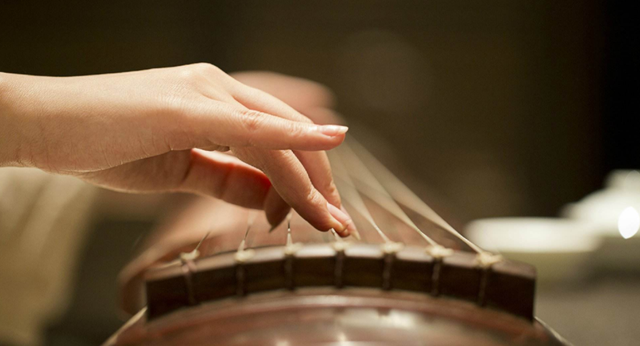Guqin singing is so important
For a long time, the guqin has always been focusing on "vivid and full of charm", but how should the charm and charm be expressed in fingering? It is mainly determined by the left hand's up and down advance and retreat, Zhuo Zhu Yin, etc.

Whether or not you can play a qin piece in a lively manner, half depends on the yin, and the beauty of the yin lies in its perfection. Spend".
Yin-Yu fingering has been widely quoted before the Tang Dynasty, and it can be seen in both "Jie Shi Diao · You Lan" and "Wusi Lan Fingering". The ancients attached great importance to yin, which is far beyond our imagination. We subdivided yin into methods such as "inheriting the sound, seeing the sound, before the sound, after the sound, on the upper, down, and the emblem", etc. As for the types and quantities of yin, until today, no one has been able to give a specific answer...
Today, when we play the guqin, many people are used to simplifying these details. Whether it is chanting or yowling, slide it left and right twice. Even if it is completed, it will lose the biggest feature of the guqin. This is why the same piano score, if you play it according to the score, it will be bland, and the famous teachers and famous players will pop up. Intoxicated.
If the qin music is likened to a beauty, then the right hand striking the strings is the beauty of her bones and skin, while the left hand movement is the beauty of her charm and temperament. "Like a giant, graceful like a dragon", it is so beautiful that it will be unforgettable for a long time.
This shows how important the chanting of the guqin is. "Kung Fu outside the piano" is not a one-day work, it needs a full range of supplementary lessons, and I spend my whole life learning and comprehending. I would like to encourage each other. If you still don't know much about Guqin fingering, welcome to Yunhe to exchange and learn together!
 渝公网安备 50010702504639号
渝公网安备 50010702504639号